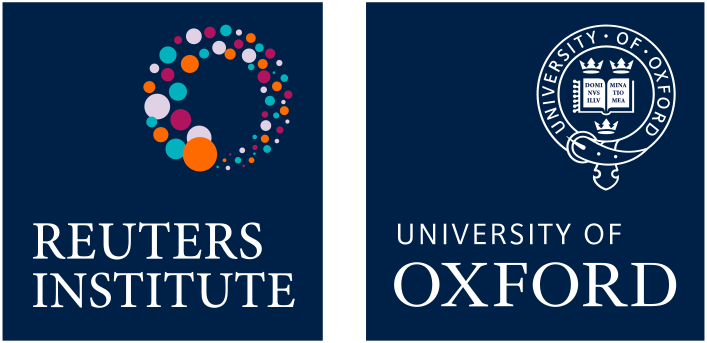
Romania
A sophisticated disinformation campaign that prevented a free vote, uncontrolled pre-electoral public spending, and external interference led to a far-right, pro-Russian, ‘TikTok candidate’ for the Presidency securing a first-round victory in November 2024. The Constitutional Court cancelled the results and postponed presidential elections which were eventually won in May 2025 by a pro-western candidate Nicușor Dan.
2024 could have been a great year for the Romanian media market whose revenues exceeded the €1bn mark. With the combination of the UEFA Euros and the Summer Olympic Games and elections at all four levels (with local, parliamentary, European, and presidential elections), money seemed to flood newsrooms. The advertising market reached an estimated €778m1 – a record level. Another €180m came from the state budget, for the public television broadcaster, public radio, and the national press agency. Political parties and candidates used at least another €150m from public funds for communication campaigns, according to Expert Forum, a think tank, and Snoop, an investigative news site.
Some of this public money was used to buy positive coverage which, surprisingly, was allowed by the National Audiovisual Council. ActiveWatch, an NGO, and Snoop revealed that television stations charged candidates for paid broadcasts which, although labelled as electoral programmes, were made by the stations’ journalists at a cost of up to €200,000 each.
Despite all this spending on traditional channels, a candidate with no electoral staff, no party, zero declared electoral budget, and very limited exposure in mainstream media won most of the votes in the first round of presidential elections in November 2024. Călin Georgescu campaigned on social platforms like Facebook, YouTube, and TikTok with anti-NATO, anti-European Union, pro-Russia, and far-right messages. He called for the abolition of political parties and the dismemberment of Ukraine between its neighbours. Declassified intelligence reports, criminal investigations, journalists, and cyber-activists revealed that part of Mr Georgescu’s support came from a network of Russian-affiliated webpages, websites, social media channels, and accounts,2 from a paramilitary group, from a Romanian entrepreneur who paid €1m to TikTok influencers, and from Romanian far-right parties. Ahead of the election it became clear that Mr Georgescu was breaking the law by posting unlabelled electoral content and the electoral authorities asked social platforms to delete his posts and that he respect electoral law. TikTok did not comply, so the media dubbed Mr Georgescu the ‘TikTok candidate’. DNR data show that 25% of our respondents use TikTok as a news source. The European Commission opened an investigation into TikTok.
In a historic judgment, the Constitutional Court decided that a social media-based disinformation campaign had prevented a free vote and cancelled the presidential elections. Electoral authorities disqualified Mr Georgescu from the new presidential race.
The re-run poll which took place in May 2025 was won by the pro-western mayor of Bucharest, Nicușor Dan, who gained 7.2% more votes than right-wing party leader George Simion, Georgescu’s ‘protégé’.
Earlier, during several street protests, Georgescu supporters attacked journalists and the police. He is now facing six criminal charges linked to his presidential campaign, including incitement to undermine the constitutional order.
The cancelled presidential elections and increasing tension in international relations heightened both the anxiety of digital audiences and their appetite for news. Mainstream newsrooms and investigative teams are still setting the public agenda, but just under a quarter of digital audiences indicate that their main news sources are social media, podcasts, or AI chatbots. These are the audiences most likely to be exposed to the new brand of influencers – some supporting Georgescu and others opposed to him and adopting pro-EU positions.
With a mixture of investigative journalism, non-partisan coverage of politics, light-hearted news, popular gameshows, and action movies, the general interest channel ProTV remains the top brand online and offline. Leading brands include Romanian-owned Antena 1, Realitatea TV, România TV, HotNews, and Adevărul, Czech-owned ProTV and Europa FM, and Swiss-owned Libertatea, alongside public radio and television. Digi 24 and Kanal D belong to publicly quoted companies in Romania and Turkey respectively.
Two new online brands, Recorder and G4Media, have a different business model. Recorder is known for investigative and explanatory video journalism. Its podcast, launched in 2023, became a favourite source for daily news briefs among podcast listeners last year. G4Media originated as an investigative and hard news site, covering politics, justice, and corruption, and later broadened out. Both Recorder and G4Media rely on donations, grants, and advertising. Their arrival in our list of top online brands marks a new era for Romanian newsrooms, providing some hope for the sustainability of quality journalism.
Raluca-Nicoleta Radu
University of Bucharest
Methodology note
We introduced education quotas in 2023 to make data more representative of national populations. Part of the declines in reach in the source chart between 2022 and 2023 will be because there are more people with lower levels of education in our sample now, who typically have lower interest in news.
Pay for online news
12%
Trust in news overall
26%
(-1)
=44/48
Many brands faced a sharp decrease in trust in the last year, perhaps linked to a strong campaign against mainstream newsrooms from far-right leaders. By contrast, trust in the 24-hour news channel Realitatea Plus, which endorsed Călin Georgescu and the far-right narrative after the November presidential elections, is stable. As a result of its position the channel attracted fines from the regulator and the withdrawal of advertising.
RSF World Press Freedom Index
55/180
Score 66.42
Measure of press freedom from NGO Reporters Without Borders based on expert assessment. More at rsf.org
Share news via social, messaging or email
24%
Footnotes
1 Initiative. (2024). Media Factbook. Romania 2024. https://www.mediafactbook.ro/.
2 Martinescu et al. (2024). 'Networks of Influence: Decoding Foreign Meddling in Romania’s Elections. The Foreign Policy Center'.

